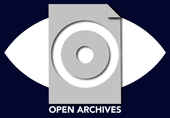Research methodology phases as the key to open a way in the jungle of facts
DOI:
https://doi.org/10.15332/erdi.v2i2.147Keywords:
Phases, Methodology, Research, Science, Data Matrix, Scientific process, Inference, HypothesisAbstract
This article shows the steps for the development of scientific research from the formulation of the problem by building a theoretical framework that shows the meaning of the data that are required to satisfy the hypotheses and organizing them according to a logical structure: the data matrix; then proceeds to use within the logic of the scientific method in their expression hypothetical – deductive, to reach a product purely scientific.Downloads
References
Bunge, M. (1958). La ciencia su método y su filosofía. Buenos Aíres: Universidad de Buenos Aíres.
Popper, K. (1980). La lógica de la investigación científica. Madrid: Editorial Tecnos. En: [http://ebookbrowse.com/la-logica-de-la-investigacion-cientifica-karl-rpopper-pdf-d182345521 Consultado, septiembre 26 de 2012]
Sabino, C. A. (1992). El proceso de investigación. Buenos Aires: Lumen.
Samaja, J. (2010). Epistemología y metodología, elementos para una teoría de la investigación científica. Buenos Aires: Editorial Universitaria de Buenos Aíres Eudeba.
------------- (2012). Inédito I: El papel de la hipótesis y de las formas de inferencia en el trabajo científico
Savater, F. (1998). La dimensión ética de la empresa. Bogotá: Siglo del Hombre Editores.
Ynoub, R. C. (2012). Inédito I: La ciencia como práctica social. Bases para situar el examen del proceso de investigación científi¬ca en sentido pleno.
---------------- (2012). Inédito III: Problematizar. El nudo argumental del proceso de investigación
---------------- (2012). Inédito IV: Sobre modelos, conjeturas y predicciones en el proceso de la investigación
---------------- (2012). Inédito VI: Estructura, génesis y dialéctica en la construcción de datos científicos
---------------- (2012). El proyecto y la metodología de la investigación. CENGAGE Learning
Downloads
Published
How to Cite
Issue
Section
License
Publishing and copyright
The authors of the articles accepted to be published, transfer proprietary rights to Espiral, Journal of Teaching and Research for the partial reproduction of the published work in electronic media (websites, indexes, directories), as long as their purposes are academic but not commercial.








